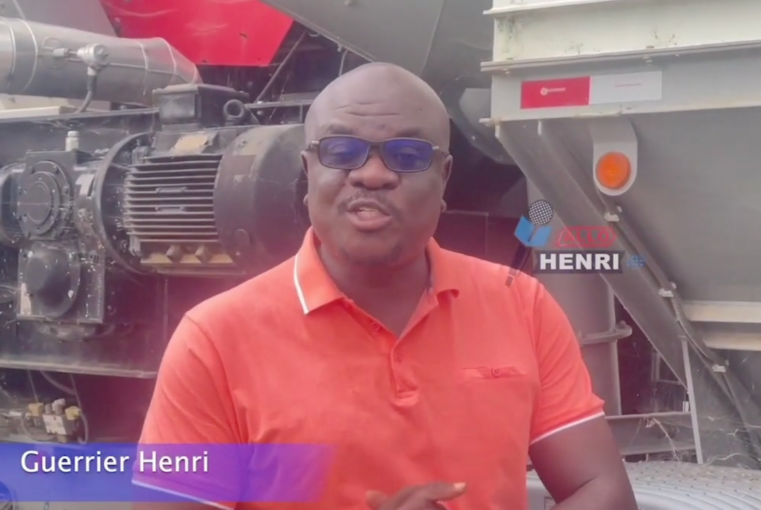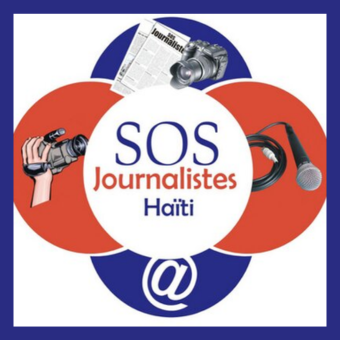Guyler C. Delva, a journalist and press freedom advocate in Haiti, fears for his life after he said he’s been the target of repeated threats, legal harassment and hostility. Meanwhile, the organization he leads, SOS Journalistes, is experiencing severe financial difficulties.
Delva, who is also vice chair of the Inter American Press Association's (IAPA) Committee on Freedom of the Press and Information in Haiti, said that since early August he has received threats in public places from unknown individuals. He suspects the attacks come from the highest levels of power in Haiti and are in response to the staunch advocacy he and his organization carry out on behalf of persecuted, attacked or murdered journalists.
“I think all that is coming from the government, from the Presidential Transition Council [sic],” Delva told LatAm Journalism Review (LJR). “I'm in this situation where I have to defend all other journalists that are being targeted. And that upsets them. They are very upset.”
#HAITÍ | La SIP condenó enérgicamente las amenazas contra la seguridad personal de Joseph Guyler C. Delva, periodista haitiano reconocido por su labor en defensa de la libertad de prensa y de expresión.https://t.co/WxokEOfRti
— SIP IAPA (@sip_oficial) September 9, 2025
The Transitional Presidential Council, or CPT, is the nine-member body that has exercised power in Haiti following the assassination of President Jovenel Moïse in 2021 and the resignation of Prime Minister Ariel Henry in 2024.
A CPT spokesperson told LJR that Delva is not being persecuted.
"The CPT has no reason to react to these slanderous accusations, because during this period no one has been persecuted for their opinions," the spokesperson said.
Since Delva went public with the threats against him, both the IAPA and Committee to Protect Journalists (CPJ) have called on Haitian authorities to ensure his safety.
In particular, Delva believes the hostility toward him stems from his activism in the cases of journalists Guerrier Henri, accused this year of having ties to gangs, and Jean Dominique, murdered in 2000.
Delva said that people within the government who are sympathetic to his causes have warned him that his condemnations of the authorities' actions in recent months are not well received.
“I went to a supermarket, and then there's a guy who came up to me accusing me of embarrassing the government, as if I'm lying about the government because I'm defending the case of journalist Guerrier Henri, who had to leave the country because they're trying to arrest him,” Delva said.
In November 2024, Haiti’s National Telecommunications Council (CONATEL, for its French acronym) suspended Henri’s political commentary program “Boukante Lapawòl” (“Exchange of Words” in Haitian Creole) from Radio Méga FM for allegedly broadcasting “gang propaganda.”
The suspension came after the program aired a call in which gang leader Jimmy “Barbecue” Chérizier accused a member of the transitional presidential council of offering him a large bribe to negotiate peace with the gangs, which currently control up to 90 percent of the Haitian capital.
The suspension of "Boukante Lapawòl" was lifted in June of this year following condemnation from national and international organizations, including SOS Journalistes. However, Henri was summoned on July 28 to appear before the Central Directorate of the Judicial Police (DCPJ).

Haitian journalist Guerrier Henri had to flee his country after the Police accused him of having ties to gangs. (Photo: Screenshot of Henri's YouTube channel)
When he failed to appear, the agency issued an international arrest warrant two days later, accusing Henri of gang affiliation, illicit enrichment, and money laundering. CPJ reported at the time that the journalist had been forced to flee his country.
Delva said he believes that SOS Journalistes' condemnation of alleged irregularities in Henri's case and the suspension of his program has caused animosity toward him.
“I've participated in several meetings, including with the CPT. And I can feel how angry they have been every time I address the case of that journalist,” Delva said.
Delva said he fears that the police intend to legally persecute him in a manner similar to Henri. He said he received a call in August from the spokesperson for the DCPJ requesting an address to send him a document. Without telling him what it was about, he said the spokesperson asked him to speak to the judiciary police chief.
Delva said he was unable to locate the chief and never received the document. However, he said a contact within the DCPJ told him that the institution was planning to charge him with having ties to gangs, but that an official allegedly warned this could have disastrous consequences for the police's image, given Delva's high international profile.
Delva denied having ties to gangs.
Since then, Delva has suspended his professional activities and temporarily left his home to seek refuge in an alternate location. He said he hasn't ruled out leaving the country.
LJR sought comment from Haiti’s national police through a spokesperson, but had not received a response as of publication.
Delva said he believes the harassment against him is also due to the recent actions SOS Journalistes has taken to seek the reopening of the case of the murder of journalist Jean Dominique, given that it has been blocked in the Haitian Supreme Court for nearly 10 years.
Dominique, director of the independent radio station Radio Haití-Inter, was gunned down on April 3, 2000, along with a security guard. In 2014, a judge formally charged nine people with the crime, including politicians close to former President Jean-Bertrand Aristide. However, judicial authorities never reached a definitive conclusion after a process that, according to organizations such as Amnesty International and Reporters Without Borders, was riddled with inconsistencies.
Delva, who has followed the case closely for 25 years, said he intends to bring it before the Inter-American Commission on Human Rights (IACHR). These intentions, he said, bother the transitional presidential council.
“This case is, I would say, the most important case of the assassination of a journalist in Haiti. And they fear that this case will be re-launched,” Delva said. “I'm the one that really wants to move that case ahead, and that's one thing that really bothers them.”
While Delva remains out of sight to protect his safety, he said the organization he leads faces a critical situation.
The journalist said that SOS Journalistes, which has been operating since 2005, has been supported primarily by donations. However, in recent years, donors have been withdrawing due to the economic crisis in Haiti.

Delva said that SOS Journalistes has significant debts, including the annual rent for its offices, which was due on July. (Photo: SOS Journalistes on X)
The country is facing its sixth consecutive year of economic decline, with an annual inflation rate of nearly 29 percent. Furthermore, in August, the CPT declared a three-month emergency period in three key departments to combat the sharp increase in violence by criminal gangs.
“We had some people, not political, but people who appreciated what we were doing, that is to help. But these people have told me that they can no longer help, because the economy is down,” Delva said.
Although it continues to operate and monitor the cases of journalists at risk, the organization has significant debts, including the annual rent for its offices, which was due on July 12, Delva said.
Delva said SOS Journalistes recently responded to a call for proposals from the CPT to boost the work of media outlets and journalists in Haiti, but the organization was excluded from the program at the last minute. The journalist believes it was a boycott of the organization motivated by his activism and critical stances.
“I'm a target and they're trying to find everywhere to shut SOS Journalistes,” Delva said.